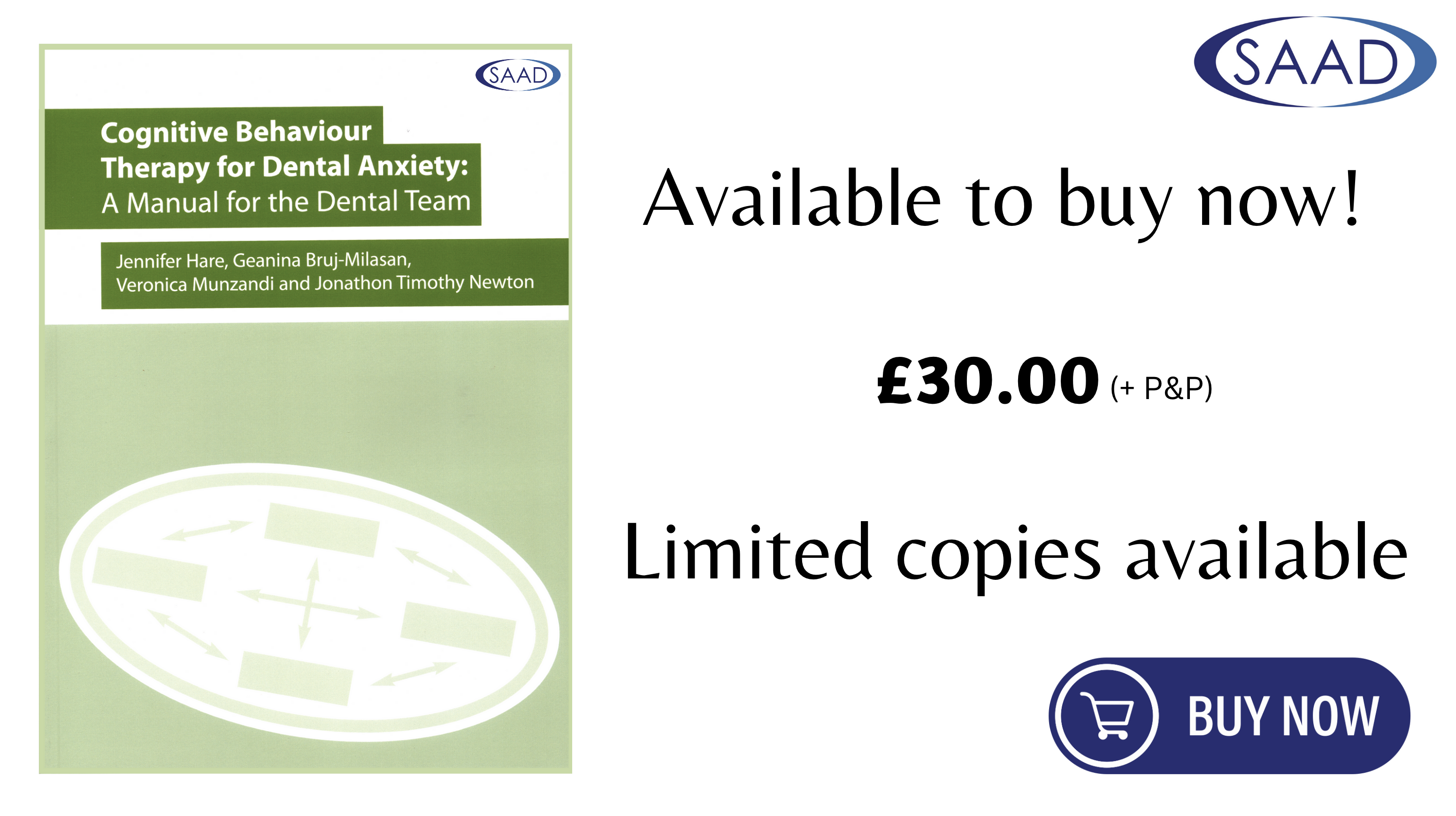Cognitive Behaviour Therapy for Dental Anxiety:
A Manual for the Dental Team
Jennifer Hare, Geanina Bruj-Milasan, Veronica Munzandi and Jonathon Timothy Newton
(Published September 2023)
A brand-new edition of the original 2008 Cognitive Behavioural Therapy (CBT) for dental anxiety manual created by the King’s College London (KCL) team was has been re-written and published in September 2023 by members of the Dental Psychology Service, based within Guy’s and St Thomas’ NHS Foundation Trust. The Dental Psychology Service is a specialist service that exists to identify, assess and treat psychological difficulties that are related to and/or impact on dental care, treatment and outcomes.
The original toolkit was created with funding from SAAD in 2008 and thanks to a new grant awarded 10-years later in 2018, the formally established NHS clinical service have re-edited and produced the manual and training resources to reflect the latest research and current practice of CBT employed within the department to treat patients with dental phobia.
This 10-chapter book is intended to support practice and delivery of CBT-based intervention for patients with dental phobia, or for those interested in how CBT can support patient anxiety management and care in the dental setting.
The manual covers:
1) an overview of dental anxiety
2) an overview of CBT
3) assessment
4) formulation
5) skill acquisition
6) behavioural interventions
7) cognitive interventions
8) review and ending therapy
9) supervision of practice
10) setting up a service
It also comprises 31 appendices to support service delivery.
This new manual is usually provided as part of a face-to-face teaching course delivered by the authors, along with tasks and exercises at the end of each chapter. However, the manual can also be purchased via the SAAD website for self-directed learning, with access to some additional learning materials. If purchased in this way, the authors would advise discussing the self-directed learning tasks with a suitably qualified colleague, such as a CBT therapist or practitioner psychologist, who will be able to provide feedback and guidance.

